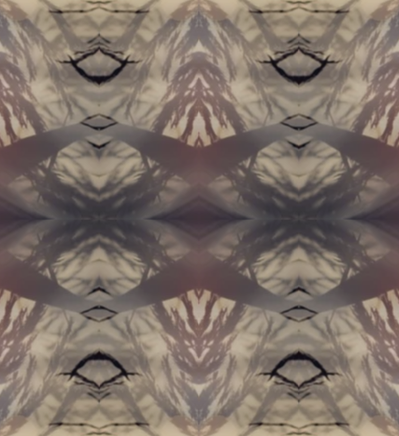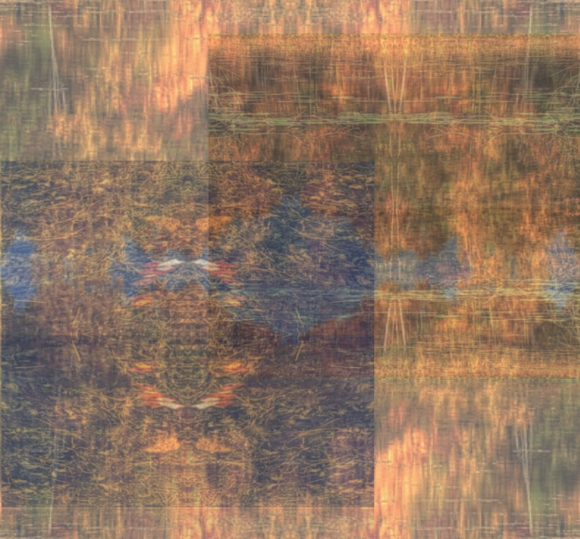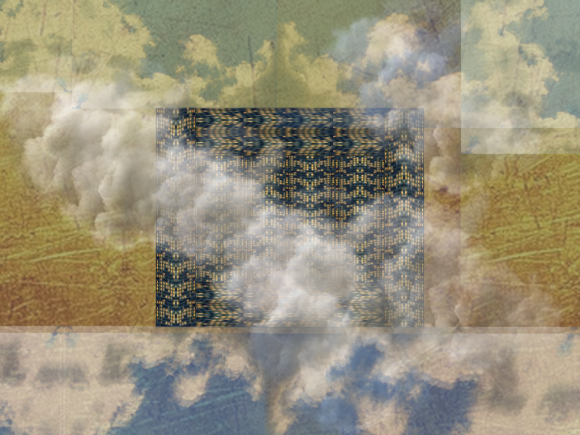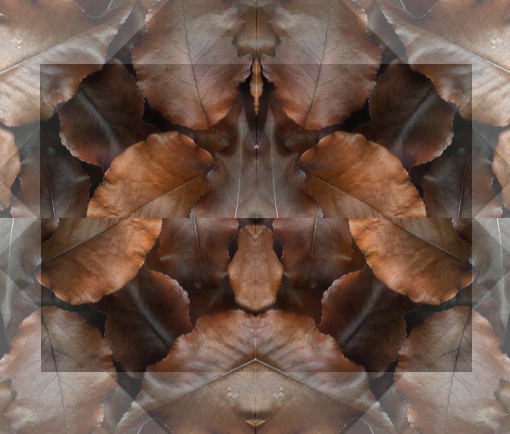[Note: This post has been superseded by an updated and more integrated article.]
We have already seen two roles that mirrors play in Durrell’s Alexandria Quartet: they indicate a certain self-awareness (a ‘reflectiveness’, we might say with a somewhat tired pun) in a character, and they expose a distance, even separation between their inner worlds when they interact.

In other words, Durrell has his characters perceive things in mirrors (or ‘as’ in mirrors) when he wants to direct the reader’s attention to the self-awareness that accompanies that perception; and he has his characters communicate via a mirror, sometimes in complicated ways (and sometimes with themselves only), in order to insert distance, and several times even the characters’ own philosophical musings refer to that symbolic function explicitly.
1. When the narrator tells us about the beginning of the relationship between Justine and Arnauti — a relationship he knows only from Arnauti’s autobiographical novel —, these two functions are again in play. He quotes Arnauti’s book:
‘I have already described how we met — in the long mirror of the Cecil, before the open door of the ballroom, on a night of carnival. The first words we spoke were spoken, symbolically enough, in the mirror. […] We smiled and I passed her on my way to the ballroom, ready to walk out of her mirror-life forever, without a thought.’ (63)
That this meeting ‘in the mirror’ is called symbolic already by Arnauti is remarkable. Remember that Arnauti is the author of a book-within-a-book. It is as if Durrell wanted to hammer the point home: he has Arnauti use the phrase a second time, using the same wording: “‘I have been thinking about the girl I met last night in the mirror […].’” (59) And the narrator himself leads into his quotations from Arnauti’s book with a summary, again with the same phrasing: “They met […] in the gaunt vestibule of the Cecil, in a mirror.” (58) (At this point in the novel, the narrator has already related how his own connection with Justine came about, and characteristically, that had also happened ‘in the mirror’.)
Moreover, the separation that is invariably effected when characters interact in the mirror rather than directly is suggestively alluded to in the image of ‘her mirror-life’. It sounds as if the encounter takes place, not in the real world and thus in Justine’s life, but rather in a second, just ‘mirrored’ world, and so in her ‘mirror-life’. This bifurcation of worlds and lifes is something Arnauti ascribes to Justine here, but it is congenial with her own views, too (as she formulates them in her diary). In contrast to Justine’s account, however, where the separation is inescapable, in this scene the mirror world proves to be accessible: after all, Arnauti can enter and leave it.
Arnauti (in the passages the narrator quotes at length from his autobiography) claims to be, not jealous, but curious about Justine’s many secret friendships, one of which is with (as we infer) Balthazar. In the course of his spying on her, Arnauti finds the impression of a letter from Justine to Balthazar on a blotting pad:
Once she left a particularly clear impression on my blotting-pad and in the mirror (the mirror again!) I was able to read […] (64)
Again it is Arnauti himself who emphasizes the symbolic meaning of the mirror image, as if he associates the secret world of Justine’s thinking (and connections with people other than himself) with a location in a separate mirror world. But if there is a separation, the mirror is also somehow a privileged instrument to overcome that separation, a kind of window into that secret world.
This, then, seems to be a third function, or at least a kind of extension or synthesis of the two others: the mirrors provide a stage, or a window onto a stage, on which the kind of meeting of the souls is possible that (sometimes at least) cannot happen in direct interaction.
2. And it is not restricted to interactions between different people. It is also in play with self-talk.
The moonlight shone directly on to the mirror, and by its reflected light he could see his father sitting upright in his chair, confronting his own image with an expression on his face which Narouz had never seen before. It was bleak and impassive, and in that ghostly derived light from the pierglass it looked denuded of all human feeling […] he saw [his father] confronting himself in a moonlight image, slowly raising the pistol to point it, not at his temple, but at the mirror, as he repeated in a hoarse croaking voice: ‘And now if she should fall in love, you know what you must do.’ (418-419)
It is not entirely clear whether the old man envisions suicide or murder here — and if the latter, whose: that of his wife, or her lover (or both) —, but again the mirror provides something like a stage for the contemplative rehearsal. The mirrored image of the person himself is of course part of that stage, cast in the role of an auxiliary character; but note that the mirror also does the lighting here, which considerably increases the drama of the scene.



